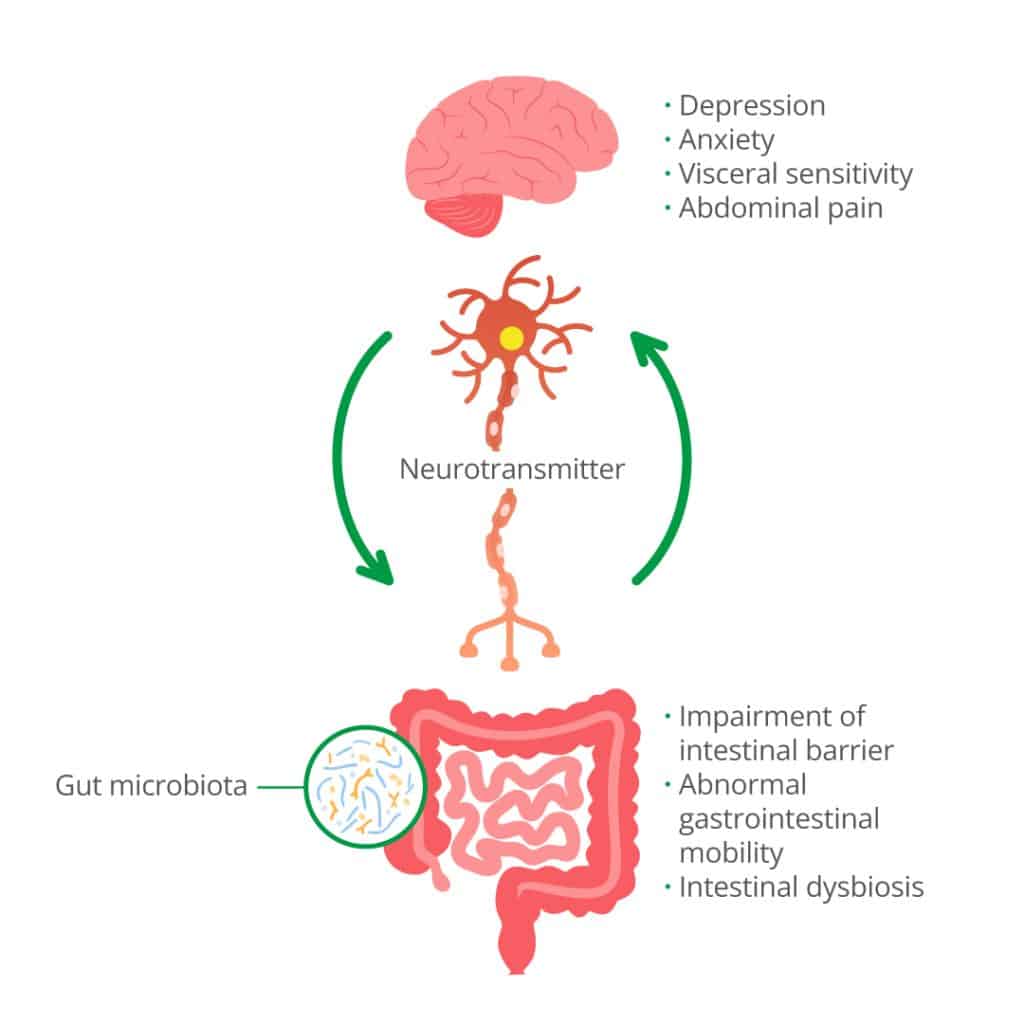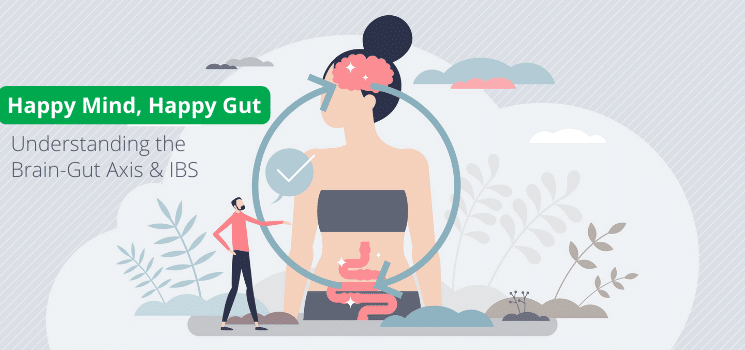Irritable bowel syndrome (IBS) is a common illness in Singapore that can significantly affect the quality of life of sufferers, even though it is benign. In fact, 21% of Singapore’s population, more than a quarter of its people, suffer from IBS. The aetiology of IBS is multifactorial. One of the factors that have been implicated in the development of IBS is the brain-gut axis, which is the complex communication network that connects the brain and the gut. In this article, we will discuss the brain-gut axis, its relation to IBS, and some of the latest research on this topic.
What is the Brain-Gut Axis?
The brain-gut axis is a bidirectional communication network that connects the central nervous system (CNS) to the enteric nervous system (ENS). The ENS is a collection of nerve cells that controls the gastrointestinal tract, and it is often referred to as the “second brain” because of its ability to function independently of the CNS. The brain-gut axis is responsible for coordinating many essential functions in the body, such as digestion, absorption, motility, and secretion. It also plays a role in regulating inflammation and immunity in the gut. The communication between the brain and the gut is mediated by a variety of pathways, including neural, hormonal, and immunological pathways.
IBS and the Brain-Gut Axis
IBS is a chronic gastrointestinal disorder that is characterised by abdominal pain, bloating, and changes in bowel habits, such as diarrhoea or constipation. Although the exact cause of IBS is not fully understood, research has suggested that alterations in the brain-gut axis may contribute to the development of this condition. For example, studies have shown that individuals with IBS have alterations in the brain-gut axis, including increased sensitivity to gut stimuli, changes in gut motility, and alterations in the microbiome, which is the collection of microorganisms that live in the gut. These changes may be due to alterations in the communication between the brain and the gut, which can affect the functioning of the ENS.
This is why gastrointestinal symptoms such as vomiting or diarrhoea may present itself just before a stressful event such as taking an examination or before a major presentation. This is commonly referred to as “butterflies in your stomach”, a physical sensation resulting from the intricate connection between the brain and the gut.

Research on the Brain-Gut Axis and IBS
In recent years, there has been a growing interest in the role of the brain-gut axis in the development and treatment of IBS. Several studies have investigated the use of probiotics, prebiotics, and other dietary interventions in IBS, with promising results. For example, a recent meta-analysis of 20 randomised controlled trials found that probiotics were effective in reducing symptoms of IBS, including abdominal pain and bloating.
Other studies have focused on the use of psychological interventions, such as cognitive-behavioural-therapy (CBT), in the treatment of IBS. CBT is a type of psychotherapy that focuses on changing negative thought patterns and behaviours that can contribute to the development of psychological disorders. Several studies have found that CBT can be effective in reducing symptoms of IBS, including abdominal pain and bloating.
Meta-analysis, the process of grouping the evidence of several scientific studies together to obtain a more robust scientific conclusion, has shown that hypnotherapy is effective in the treatment of IBS.
Exercise is well-known to promote good mental and physical health. Research studies have shown that regular exercise can improve IBS symptoms.
Conclusion
The brain-gut axis is a sophisticated network of communication that links the brain and the gut, enabling them to cooperate in promoting overall health and well-being. It is believed that alterations in the brain-gut axis are closely related to the development of irritable bowel syndrome (IBS). While the precise cause of IBS is not yet fully understood, studies have indicated that changes in the communication between the brain and the gut may contribute to the onset of this condition. More research is required to fully comprehend the role of the brain-gut axis in IBS and to develop effective treatments for this condition.
For concerns with IBS, book an appointment with Dr Christopher Kong San Choon at StarMed Specialist Centre.






